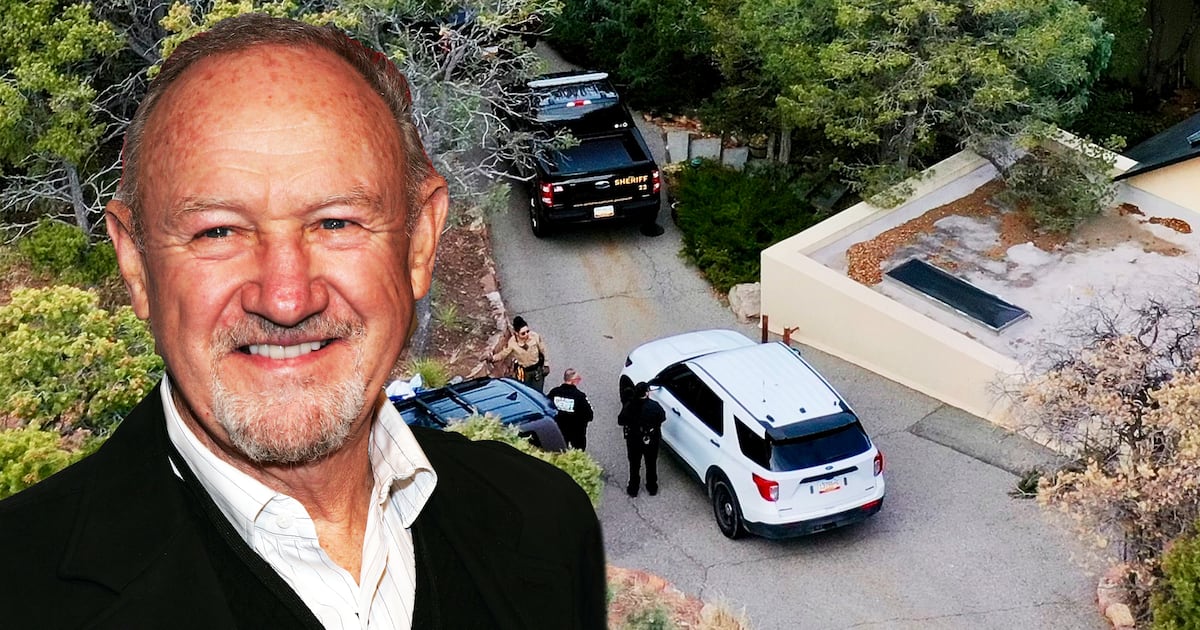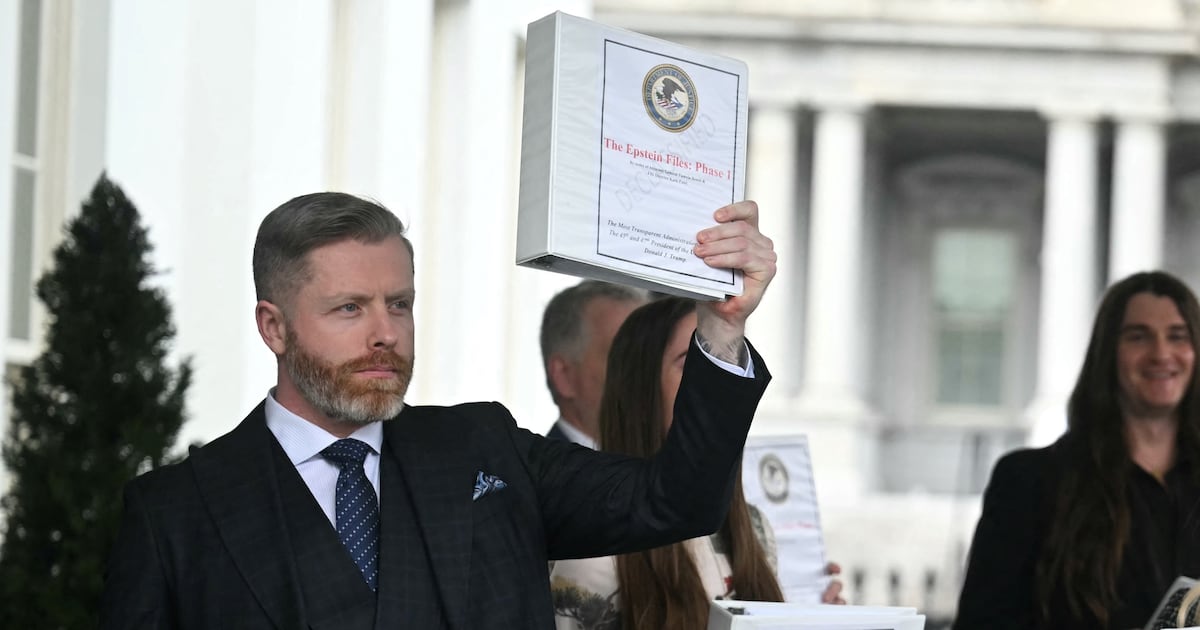SIMFEROPOL, Crimea — On Sunday, on the eve of the one-year anniversary of Crimea’s referendum opening the way to Russian annexation, there was still no sign of Vladimir Putin anywhere near Sevastopol and Simferopol, the two main cities preparing for the festive events.
The Russian president went missing on March 5.
An independent Russian television channel reported that Putin was sick with the flu. But that did not defuse the mystery. Putin’s spokesman Dmitry Peskov refused to reveal the secret of Putin’s whereabouts, leading to all sorts of problematic speculation, including stories he was in Switzerland awaiting the birth of his love child.
Meanwhile, officials from Moscow and Crimea gathered here late last week for a panel discussion about the way “reunification” with Crimea a year ago changed Russia, Ukraine, and the world.
They call those events the “Crimean Spring”—some people even call it “Putin’s Crimean Spring”—but there was a problem evident, even at this forum: The referendum leading to annexation held on March 16, 2014, was backed by the Russian military, and it showed that Russia was not going to obey any international laws any longer.
So the pundits from local think tanks and from Moscow, including academics and politicians, were left to discuss the “post-Crimea” post-annexation reality that spoiled Russia’s relations with the West. That issue is not going to vanish for many years, and that was obvious for everyone in the room. But there was no one there to demand explanations.
The forum participants spoke of opponents, meaning the West, critics of the annexation and foreign media, but in fact there was nobody for them to argue with at the roundtable—all participants shared positive views about the referendum. The problems had all been caused by the pro-European Union uprising centered in the Ukrainian capital of Kiev around the Maidan square which resulted in the fall of the pro-Moscow government of Ukraine’s then-President Viktor Yanukovych in February last year.
“If not for Nazis on the Maidan, the junta coup in Kiev, there would have never been the referendum,” one of the forum participants, Russia Public Chamber deputy Sergei Markov told The Daily Beast. “If not for the Russian unity, the powerful will of Crimea population to live in Russia, there would have never been the reconciliation.”
“A few years before,” as Markov puts it, he began to work on pro-Russian ideology in Crimea with pro-Kremlin political lobby organizing forums and roundtables with local political analysts, academics, and politicians. In the new post-Crimea reality Markov claimed that “Russia was not just a state within administrative borders; the newly shaped Russkiy Mir [Russian World] is a place where the majority of the population shared the Russian language, culture and heritage.”
The big changes are “a watershed for Russia’s new era,” said Mikhail Remizov, president of a Moscow think tank, the National Strategy Institute, and the changes developed in less than a month. In late February last year a few uniformed men seized the local parliament, surrounded Simferopol airport and showed up outside Ukrainian military bases in different parts of the peninsular. But actually the decision to turn Crimea Russian was made a few days earlier in Moscow. In a recent interview for a documentary produced of the one-year anniversary Putin said he made a decision to take over Crimea at an all-night meeting on February 22, right after president Yanukovych fled Kiev.
The referendum apparently showed that as many as 97.6 percent of voters wanted Crimea to join Russia. Over a month later, on May 18, Putin signed a Russia-Crimea decree absorbing the strategic Black Sea peninsula, saying that Crimea had “always been part of Russia.”
Since last spring, Russia has paid a high price for Crimean annexation and for backing the war between Ukrainian rebels and military forces in eastern Ukraine, known as the region of Donbass. Early on he may well have thought Donetsk, Luhansk, Odessa, Kharkiv and other cities in south-eastern Ukraine would follow Crimea’s lead, mostly because the majority of its population had always identified themselves as Russians.
But Markov says that “as a result of the coalition of Western states against us, we’ll see no Western investments, no Western technologies for a long time.” So Moscow will have to rethink its finances. “There should be a different model for Russia’s economic development, which we still don’t have,” said Markov. “The main challenge right now is to find a new ideology, a new project for Russia.”
What troubles did Crimea Spring cause for Crimea itself? Crimea became a part of Russia but remained a territory never recognized by Ukraine or the West. In practical terms that meant, among other things, that nobody could ever use Visa and Mastercard in Crimea. The main industry, tourism, shrank by over 30 percent. With Ukrainian banks and the border closing down and the Russian ruble replacing the Ukrainian hryvnia, life felt more like winter than spring to many Crimean businessmen unable to deal with Ukraine.
While state workers were happy with Russian-paid salaries and pensioners with Russian-paid pensions, the Crimean populations immediately noticed that the prices for all goods became “Moscow-like,” Denis Baturin with the Crimea Public Chamber told The Daily Beast. “Every truck bringing goods to the peninsula has to pay various fees of about [about $2,400] and wait for five days on the border for clearance in each direction to and from Crimea. That makes everything you buy in our stores much more expensive.”
As the “Crimea Spring” forum wrapped up, it was a rainy, gray day in Simferopol. Workers were putting together a stage for Monday’s celebrations. A spokeswoman for the Crimea parliament tells The Daily Beast there will be a staged “protest” against Kiev, a reconstruction of last year’s events, outside the administration building and then late at night some fireworks.
She looked happy as the preparations unfolded full speed: the anniversary celebration of Crimea Spring, which brought the relationship between Russia and the West to its lowest point since the Cold War, was coming close. Did she hear anything about Putin’s plans to visit the peninsula? The organizers hoped very much that “the leader” would join the party, too, she said.





